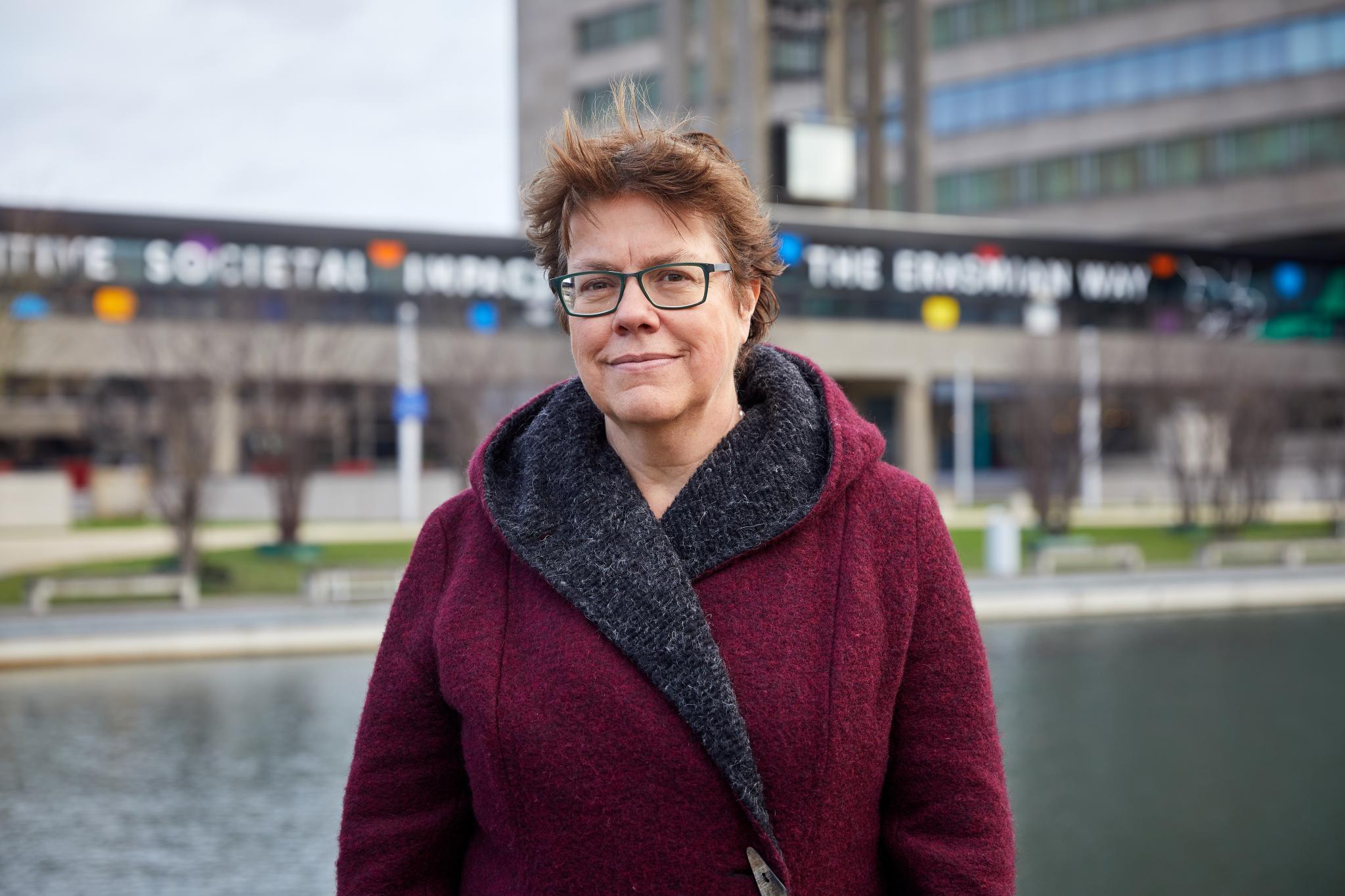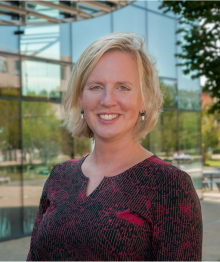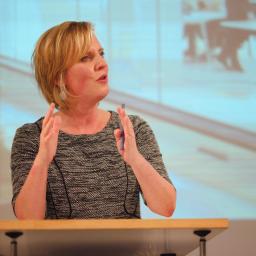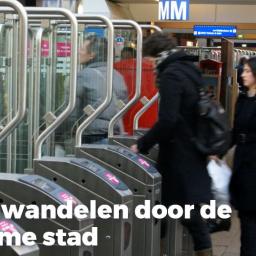More and more people live in cities. These cities face increasingly complex problems. Are digitization and datafication a means of keeping the city manageable for administrators and liveable for its citizens? Scientists from the Leiden-Delft-Erasmus Center for BOLD (Big, Open and Linked Data) Cities map out the interests of the Smart City and look at what actually contributes to society. Directors Prof. Dr Liesbet van Zoonen and Dr Jiska Engelbert discuss a social view of a technical trend.
 Prof. dr. Liesbet van Zoonen is professor at the sociology faculty of Erasmus University Rotterdam and scientific director of the Leiden-Delft-Erasmus Centre for BOLD Cities.
Prof. dr. Liesbet van Zoonen is professor at the sociology faculty of Erasmus University Rotterdam and scientific director of the Leiden-Delft-Erasmus Centre for BOLD Cities.
Liesbet van Zoonen: ‘As many of these issues also take place in cities, we have a link to all of them. It is possibly the most obvious for the Digital Society theme. Our research is about digitisation and datafication in the city. What sets us apart is that we focus on the perspective of citizens and public administrators. Within our interest in citizen perspectives, we focus on vulnerable citizens and inequalities.'
Social Glass: understanding cities through social big data
The Leiden-Delft-Erasmus Centre for BOLD Cities is investigating whether data analysis can be used to gain a better understanding of young people who do not appear in the official records. These are young people who are not in employment, no longer attend school and are not officially registered. As these young people barely appear in the official records, municipalities are unable to provide them with the support they need to fully participate in society, socially, economically and culturally. A central component of the project is the urban social data platform Social Glass, developed by the TU Delft data scientists in the research team. It can be used to combine structured city data with unstructured dynamic data originating from sensors or social media.
Read more about Social Glass
Van Zoonen: ‘The research in our Centre examines the growing influence of digital technologies in cities. The emergence of Uber and Airbnb are visible examples but digital and data technologies also have an invisible presence: many municipalities try to reduce their costs and look for data and digital solutions. They are simultaneously struggling with issues of transparency, privacy and ethics. As we often focus on the position of vulnerable groups in the smart city we also connect to research about social cohesion in the city. There is growing division at a cultural and economic level even though the city can actually be a cohesive factor, especially in view of the diversity of migration backgrounds.'
'The Centre for BOLD Cities is flourishing, and things quickly take off with a group of energetic people. The key is to maintain that direction and energy while at the same time ensuring the work of the centre becomes embedded within the universities and faculties. We want to ensure that the Centre itself is also a sustainable initiative.’
> Read the full interview with prof. dr. Liesbet van Zoonen about the Leiden-Delft-Erasmus Centre for BOLD Cities.

Dr. Jiska Engelbert, associate professorat Erasmus Universiteit Rotterdam, is strategic Director at the LDE Centre for BOLD Cities:
 'The most important trend made even clearer by the Covid-19 pandemic, is that government bodies are increasingly regarding datafication and digitalisation as the sole solution for societal problems. You can see this at the national, regional and local level in the priority given to developing coronavirus apps and dashboards, for example. This trend opens up promising opportunities for BOLD Cities.’
'The most important trend made even clearer by the Covid-19 pandemic, is that government bodies are increasingly regarding datafication and digitalisation as the sole solution for societal problems. You can see this at the national, regional and local level in the priority given to developing coronavirus apps and dashboards, for example. This trend opens up promising opportunities for BOLD Cities.’
Digital technologies in ethical questions
The Centre for BOLD Cities can use our interdisciplinary expertise to help government bodies to ensure that digital technologies are underpinned by ethical principles and public values. On the other hand, we have unique knowledge and tools that can give citizen involvement a central position within the digital ambitions of government bodies. For example, that also means challenging them to consider whether and how datafication and digitalisation should be part of the solution.'
It is about setting relevant public standards and frameworks and asking questions about the technology.
Engelbert: ‘Collaboration between the government and industry is essential for many data applications and digital innovations. Not least because government bodies cannot have specific knowledge and expertise in-house. But I also feel that government bodies should not assume that it’s industry that has all the answers. For expertise on datafication in the urban environment is not only about technical and extremely specific knowledge. In my view, it is actually about setting relevant public standards and frameworks and asking questions about the technology. Public institutions and government bodies are uniquely placed to do that.'
> Read the full interview with dr. Jiska Engelbert, about citizen participation and citizen involvement.


